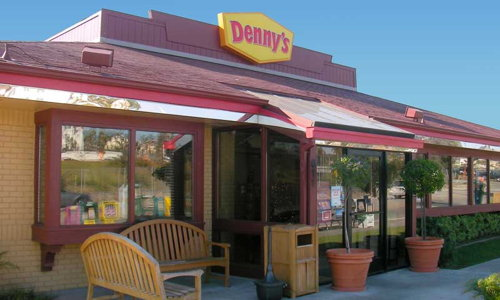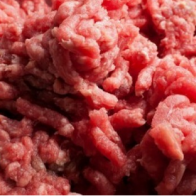
The recent flurry of well-known restaurants urgently looking to cut costs before the Affordable Care Act’s business regulations take effect in January 2013 have left many people with a bad taste in their mouths.
Conversations from outspoken restaurant CEOs heated up around Election Day, as business leaders from places like Applebee’s to Denny’s threatened to freeze hiring or enact layoffs because of Obamacare. Other businesses, like Wal-Mart, have joined the move to impart measures that would deny health insurance to newly hired employees and limit laborers to work 30 hours a week to avoid rising business costs. The Affordable Care Act, which was signed into law in March 2010, requires business to offer government-defined health care plans to any employee who works 30 or more hours a week. Businesses that do not comply with the regulation are fined $3,000 for each employee that is not covered — a financial cost that many restaurant companies that are struggling under today’s economy can’t take.
With the economy as tough as it is, we can agree that many businesses have to do what they need to do in order to keep their businesses afloat, even if it means cutting costs. But by doing so, are these eateries endangering America’s poor people, who, according to the U.S. Census Bureau, are majority female? Statistics show that 5 million more women than men live in poverty and that 27.6% of the poor population is African-American. An important measure of Obamacare is the expansion of Medicaid, a health insurance program for the financially needy that is dependent on taxpayer dollars. It is also a program that would be heavily used by many impoverished individuals who work low-wage jobs at these type of restaurants.
Today’s socioeconomic atmosphere is reminiscent of our past, eras in which the many poor people were consistently denied access to social rights. 60s-style boycotting of restaurants that seek to cut hours because of Obamacare is a popular message spreading through social media; so much so, that restaurants like Papa Johns have lost their approval rating amongst the public according to recent reports. It’s safe to say that for many, saving a dime on the cost of the blue-collar’s back does not sit well with Main Street.
This is where we must look to analyze how powerful our economic power could be. By patronizing business that flat-out say, “We can’t support the poor nor do we care too,” we are financially backing their ideology by putting more money in the pockets of people who want to preserve the nation’s uneven distribution of wealth. But then there’s the catch-22. If these businesses lose patrons, their businesses will suffer, encouraging them to do the inevitable: cut back on staff, eliminate hours, and lower pay. Or, because of labor complaints, they’ll go out of business (remember Hostess?), and thousands of people will be out of a job. Unfortunately, those at the bottom line, those that make these businesses run daily will be the hardest hit, proving that business and politics are like oil and water – they just don’t mix.
How, then, do we insure that all people are able to receive the benefits of Obamacare? How do we protect those living in poverty? As consumers that care, we may have to be the ones to foot the bill. Some businesses, like Denny’s, are considering adding a 5% surcharge to customer’s bills in order to protect employees, while others want to pass on charging customers extra because of the possibility of lost foot traffic.
It’s embedded in American culture to take care of those in need. Medicaid, Welfare, Social Security, WIC, and Disability — these are all government-backed programs that draw on taxpayer dollars to take care of those who need assistance to survive. In order to balance the complex toll that universal healthcare has taken on businesses, it will be vital that those who do have it step in and fill the gaps for those who don’t.
Our success in keeping Main Street viable will come down to whether or not everyone from the working class to the wealthy will be willing to look out for their fellow Americans by pulling out a little more change from their piggy banks. Because this isn’t a story of Welfare Queens or Food Stampers gone rogue. It’s a battle for many of life and death, one that’s both tricky and downright horrifying for a great portion of our nation.







Let’s distinguish between cases where the CEO (Papa John’s) made pronouncements that applied to the entire company vs. the cases where a local franchisee made statements about the restaurants he owned. In the case of Denny’s it was a franchisee in FL who made those statements and in the case of Applebee’s it was an owner in NY. Both owned about 40 restaurants in their local areas, but they did not speak for the entire company.
@Tina: That really is a clear distinction. Papa John’s went all out and spoke for the WHOLE company. I think Olive Garden is in that category as well. That is different than a franchise owner speaking his/her mind. I dont like either but one has SWEEPING implications for hundreds of thousands of people
I agree that there is a catch 22. But some of these businesses have already shown time and time again that they are not interested in maintaining their staff and even under huge profit margins Walmart for example has withheld benefits and implemented cutbacks. They are not making these cuts or threatening to make cuts because they can’t accommodate. They are making them because they WON’T accommodate and see what other options are because they would rather their business go under than to cut into their profit margins for the underclass of people that keep their doors open. Point blank. and the period.
Nobody boycotted Hostess. The brand was sold over and over again, each time racking up more debt until it was unsustainable. Labor problems were just an excuse for the inevitable shutting down.
@Violet M: <<<<<<<<<<<<<<<<<<<YES!